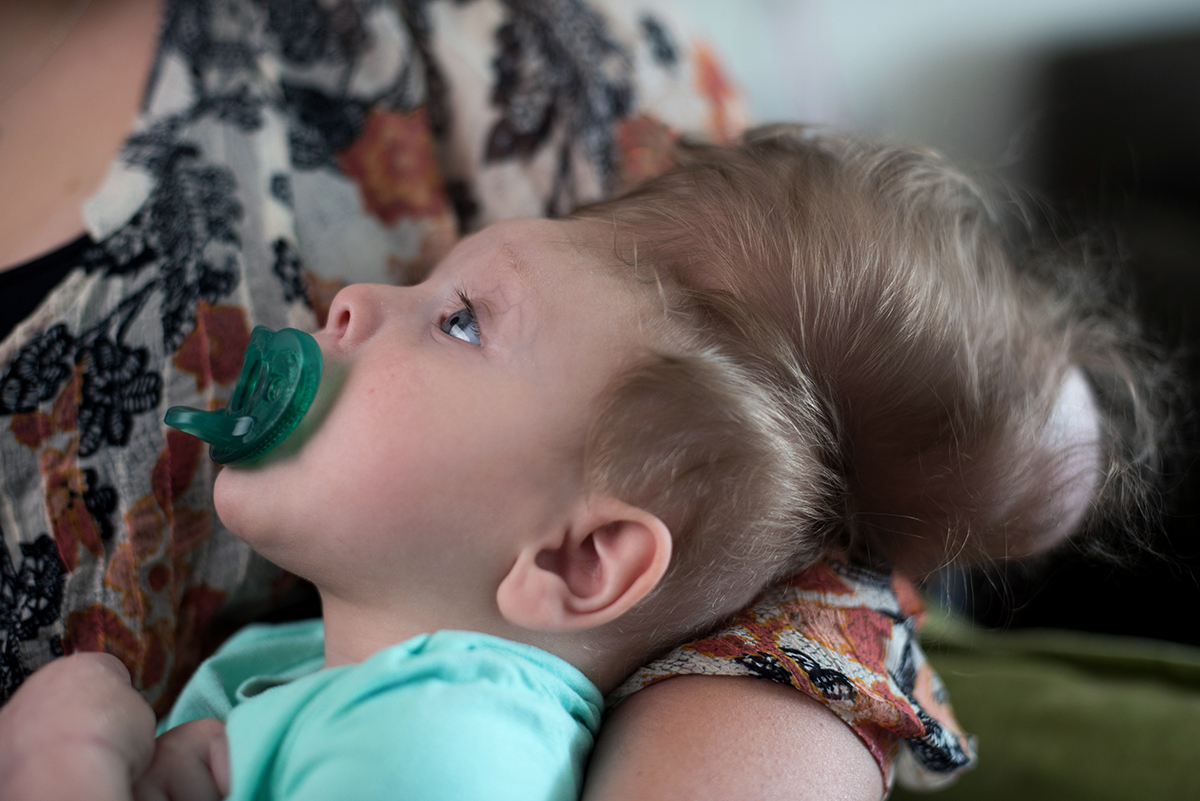Baby Born with Brain Outside His Skull Treated at Boston Children’s

Bentley Yoder before surgery. Photo by Katherine C. Cohen/Boston Children’s Hospital
An institution like Boston Children’s Hospital performs lifesaving surgeries every day. Even for a hospital of that stature, though, what happened on May 24 was incredible.
On that day in late May, the hospital treated Bentley Yoder, a nearly 7-month-old baby born with several major parts of his brain outside his skull. His condition, encephalocele, is a birth defect rare enough that Boston Children’s sees only a few cases each year, and serious enough that Bentley’s parents, Sierra and Dustin, were told that their child likely would not live long enough to come home from the hospital.
They cherished their time with him, knowing it could end any second—but it didn’t. About a month after his birth, the Yoders began consulting doctors in their native Ohio about what to do. Based on those visits, they decided to bring their son to Boston Children’s.
The surgery was incredibly risky. Parts of the brain that control motor function, vision, and problem solving sat in a sac atop Bentley’s head, and would need to be guided back into his skull. The hole in the skull would then need to be patched. Despite the risks, two Boston Children’s surgeons, John Meara and Mark Proctor, took the case. They turned to the hospital’s new, $12 million surgical simulation center to construct 3D models of Bentley’s skull, using them to plan the procedure.
“It let us know what part of the brain we could replace back into the skull and what part we couldn’t,” Proctor told Stat. “I think we understood things pretty well going in.”
Against the odds, Bentley emerged successfully from his five-hour surgery, and the two follow-up operations that came next. Though it’s unclear how much cognitive function Bentley will have as he grows up, he is recovering well, reportedly eating, smiling, and holding his own head up.
“Because of how different his brain really is, they have no one to compare him to,” Sierra Yoder told the Washington Post. “We just have to take it step by step.”


